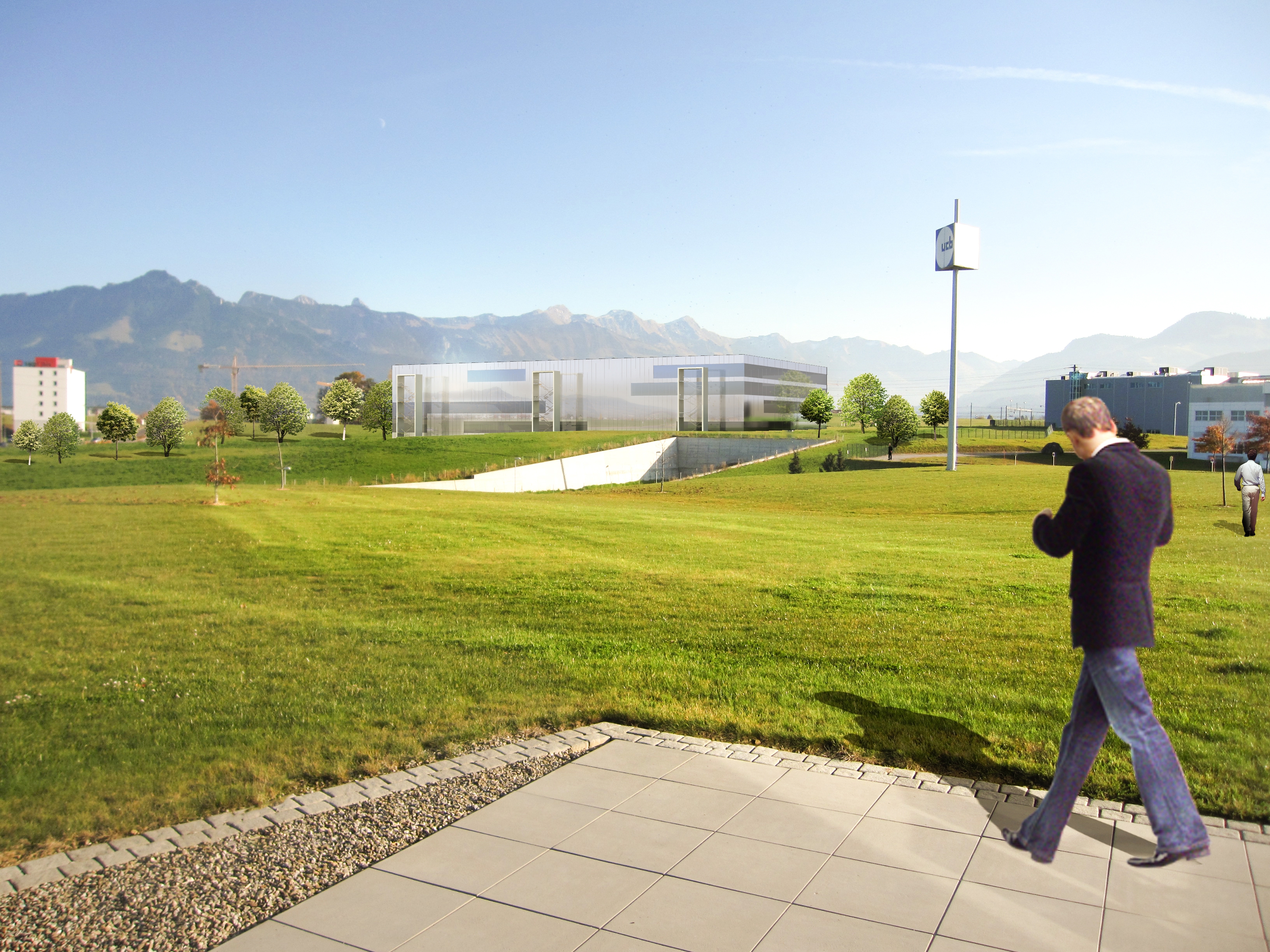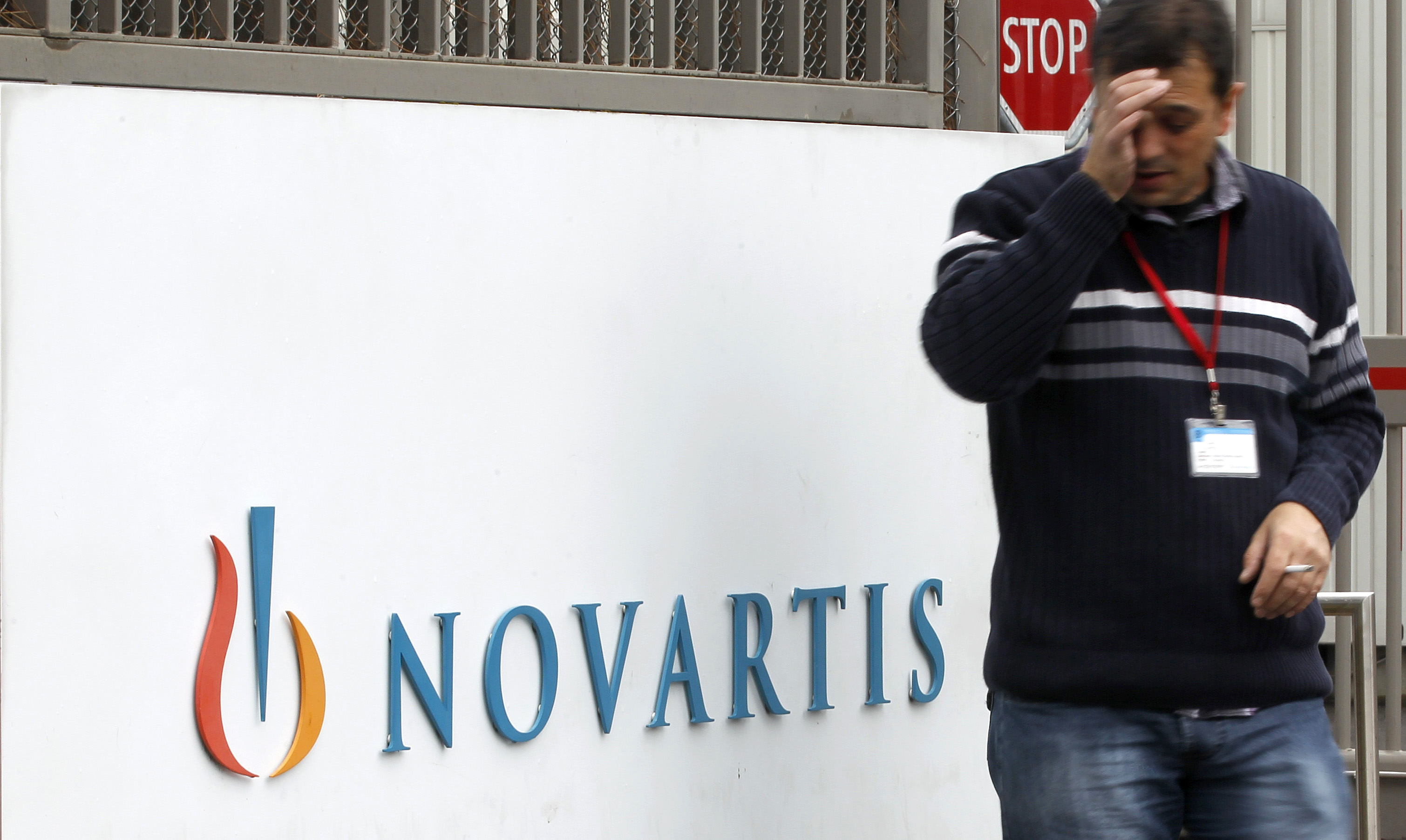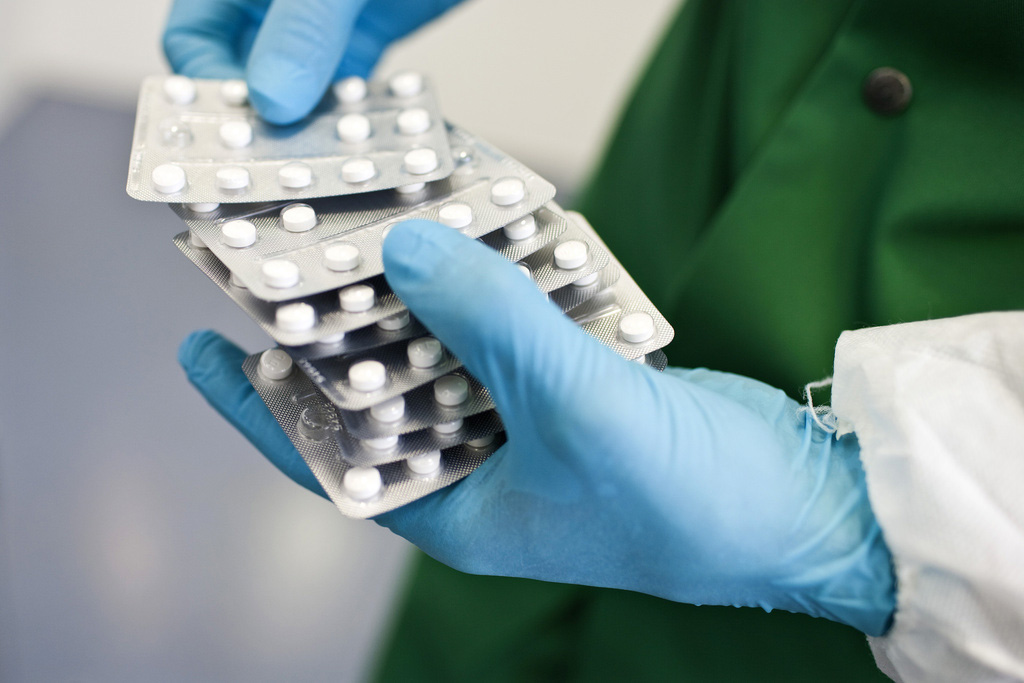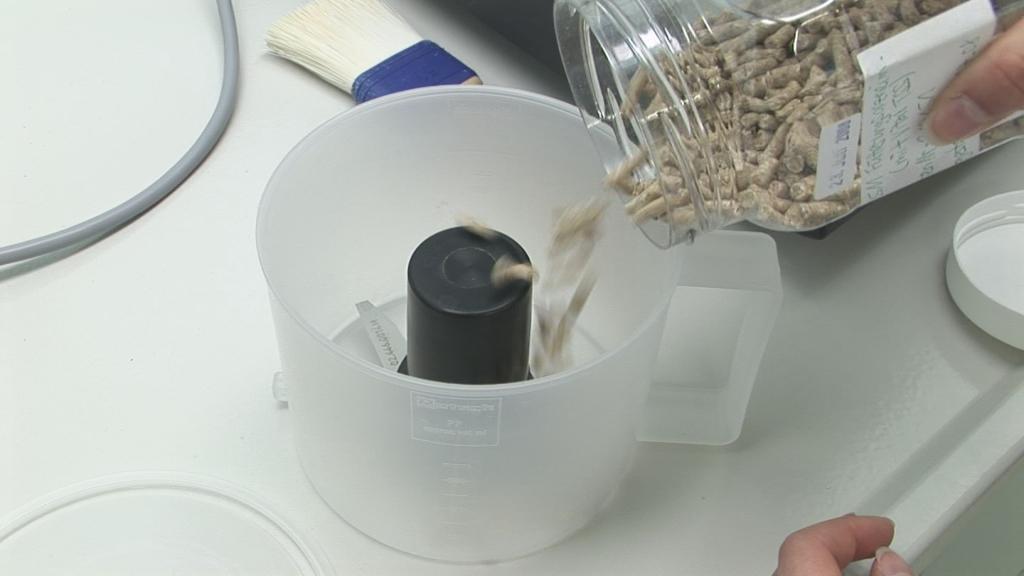UCB biotech expansion brightens pharma gloom

The Belgian pharmaceutical firm UCB has presented its new biotech production centre in canton Fribourg, which is set to become one of the largest in Europe.
Once operational in 2015, the huge new factory in Bulle will become UCB’s main production centre for Cimzia, used to treat rheumatoid arthritis. This positive news bucks a recent trend of job loss and restructuring announcements in the Swiss pharmaceutical sector.
“This new unit will be one of the largest in Europe and when finished should allow the creation of 120 to 140 new jobs,” UCB Executive Vice President Michele Antonelli told reporters in Bulle on Monday.
This move will effectively double the existing workforce there. The biopharmaceutical and specialty chemical company, which employs 8,500 globally and specialises in diseases of the central nervous system and immunology, has operated a factory in the small town between Fribourg and Lausanne for the past 15 years, employing 200 people.
The site will become the group’s main large-scale biotech production centre, allowing it to substantially increase production to meet demand for Cimzia (certolizumab pegol). This drug is used to treat rheumatoid arthritis, which affects some five million people worldwide, as well as Crohn’s disease, which affects 500,000 young people in the United States alone.
UCB is investing SFr307 million in the ultra-modern 20,000-square-metre factory, which will be fitted with laboratories, over 100 giant vats and 20 kilometres of pipes to cultivate, harvest, purify and modify bacteria into a marketable product.
The largely automated site will operate 24 hours a day, 365 days a year and become a “reference for the industry”, said UCB’s project manager Nicolas Tièche.
UCB currently outsources the production of Cimzia to firms in Visp, Switzerland, and Austria. Its main research and development centres are based in Slough, England, and Braine, near Brussels.
Why Bulle?
So why choose Bulle – alongside Braine – as one of the firm’s two future biotech hubs?
“Switzerland is a biotech-friendly country. We believe it is easier to find qualified people here, it’s a stable country and we get local support,” said Antonelli, stressing Bulle’s close proximity to the Lake Geneva region, the Federal Institute of Technology, Lausanne (EPFL), Fribourg University and local universities of applied sciences.
A favourable local tax regime cannot be ignored. Dominique Bovet, chief financial officer of the Swiss branch, UCB Farchim, acknowledged that the expansion project had benefited from cantonal “accompanying measures”, which included a number of tax breaks. The cantonal corporate tax rate is already low but this year fell from 9.5 to 8.5 per cent.
Canton Fribourg’s Minister of Economic Affairs Beat Vonlanthen said the expansion of UCB in Bulle was a perfect example of recent efforts to transform the sleepy rural region under the slogan “High tech in the green”.
“Fribourg wants to become a reference for its dynamic economy, sustainable development and innovation,” he told reporters.
But there are plenty of other recent examples. Last April the canton and city of Fribourg announced its plans to transform the site of the former Cardinal brewery into a 55,000-metre business park.
Alcon, the world’s leading eye-care company, last year launched the building of a 14,000 square-metre office complex. Located next to Fribourg’s railway station, it will employ more than 200 people.
Vonlanthen praised UCB for challenging the notion that “Switzerland was too expensive for production activities”.
Antonelli said the strong Swiss franc was an issue, “but it becomes marginal when you can do things faster and more efficiently”.
Bovet was less expansive, saying the strong Swiss franc had undeniably hit the firm’s margins but that UCB had managed to cushion the impact.
“We are part of a European group that is consolidated in euros so we are less affected by the strong franc and our research and production costs are shared across other sites and the company’s currency policy has minimised the impact, but it’s clear that we need to continue to improve efficiency,” she noted.
Bitter economic pill
The positive news from Bulle contrasts with recent announcements. The global economic downturn and strong franc have led to more than 14,000 jobs at some 30 firms being slashed in Switzerland in the last three months alone. The employers ranged from small textile makers to the country’s biggest banks.
The pharmaceutical industry has also been hit. Last month Novartis said 2,000 jobs – including 1,100 in Switzerland and 900 in the United States – would be cut. In addition to closing manufacturing sites in Nyon and Basel, the company will outsource some research and development jobs, and create 700 new jobs in “low cost and other countries”.
This follows similar measures taken last year by Roche, which slashed 4,800 positions globally, including 700 in Switzerland.
Some 237 companies operated in the field of biotechnology in Switzerland in 2010, compared with 203 in 2001.
Most firms in the industry are clustered around the Basel or Zurich regions, but there are also significant groups in cantons Geneva and Ticino.
The industry generated sales of SFr9.2 billion in 2010, a figure that stagnated from 2009. Profits were up from SFr100 million in 2009 to SFr480 million last year.
Some SFr2 billion was spent on research and development in Switzerland in 2010.
The industry employs 12,156 people in the public sector (up from 11,000 in 2008) and 7,000 in the private sector (the same as 2008).
The industry attracted some 108 venture capital transactions last year, totalling SFr255 million – down from SFr370 million in 2009.
Swiss biotechs are filing patents at a furious rate. The rate of patents filed tripled between 2001 and 2009. Only Japan files more patents per head of capita than Switzerland.
UCB is a Belgium-based biopharmaceutical and specialty chemical company that specialises in two therapeutic areas: diseases of the central nervous system (CNS) and immunology. In the area of central nervous system disorders: epilepsy, diabetic neuropathic pain, multiple sclerosis, fibromyalgia, restless legs syndrome and Parkinson’s disease, and in the area of immunology on allergies, bone loss disorders, Crohn’s disease, rheumatoid arthritis and respiratory disease.
It also delivers small and large molecule solutions to specialists for use in the treatment of severe diseases.
As of December 31, 2010, the firm was active in more than 40 countries with ten research and development centres in Europe, the United States and Japan. It had a global workforce of 8,500 and turnover of €3.2 billion.

In compliance with the JTI standards
More: SWI swissinfo.ch certified by the Journalism Trust Initiative






You can find an overview of ongoing debates with our journalists here. Please join us!
If you want to start a conversation about a topic raised in this article or want to report factual errors, email us at english@swissinfo.ch.